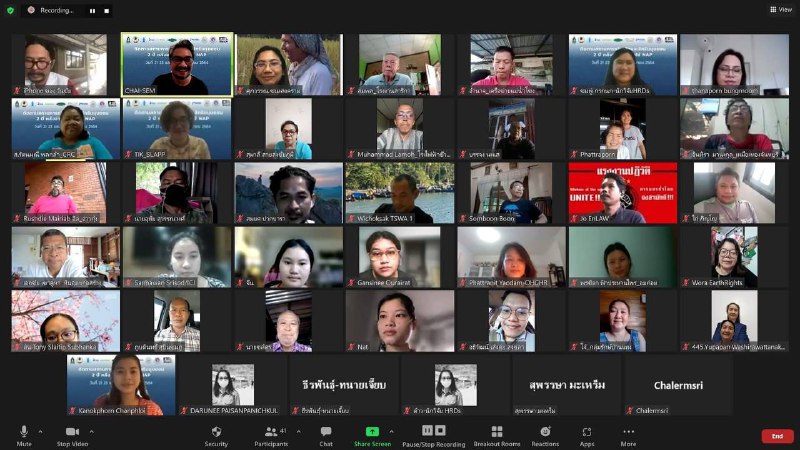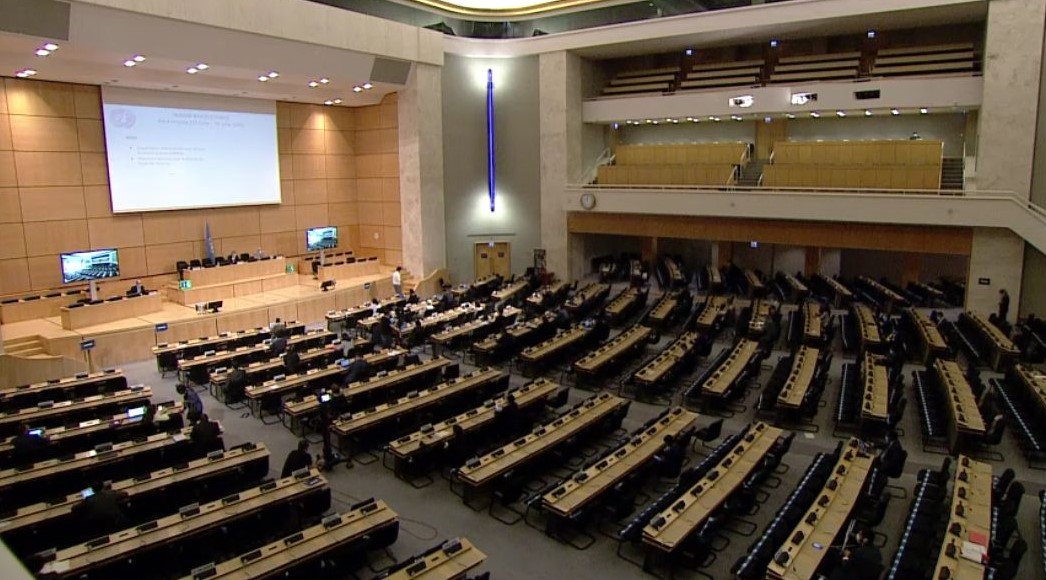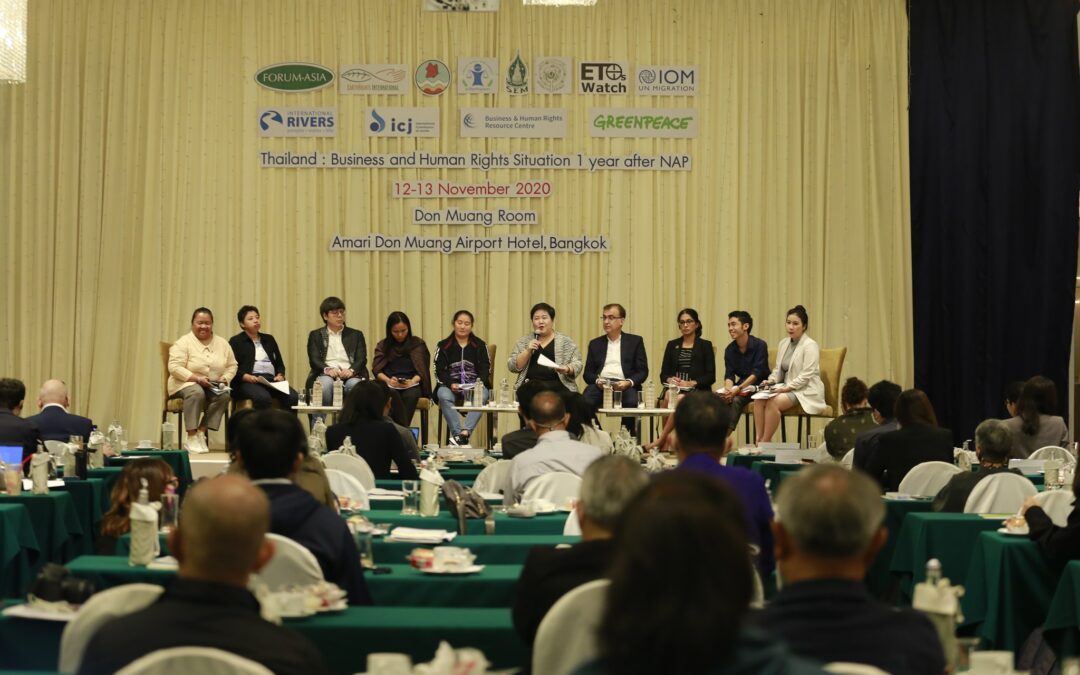
Nov 26, 2021 | Events, News
On 21, 23 and 26 November 2021, the ICJ co-hosted an online discussion on “Thailand’s National Action Plan on Business and Human Rights: 2-Year Progress Review”. The forum was co-organized with other 11 organizations.

Aug 12, 2021 | News
Today the Lawyers for Human Rights (LHR), the Socio-Economic Rights Institute (SERI) and the International Commission of Jurists (ICJ), applauded the removal of discriminatory provisions in an updated version of the Gauteng Township Economic Development Bill (GTED Bill). The Bill is open for further comments until 30 August.

Jun 29, 2021 | Advocacy, Non-legal submissions
The ICJ today addressed the UN Human Rights Council during the Panel discussion on the tenth anniversary of the Guiding Principles on Business and Human Rights.

Nov 29, 2020 | News
The ICJ and its Swiss section (ICJ-CH) regret the results of the vote yesterday in Switzerland rejecting the popular initiative for responsible businesses. While the majority of the popular vote approved the initiative, there was no majority of voters in a majority of Cantons.
Under the Swiss constitution, to be approved, such initiative amending the constitution needs the majority of both the popular vote in Switzerland and in a majority of Cantons part of the Swiss Confederation.
“The strong support gathered by this initiative, expressed in the majority of the popular vote, is encouraging, and a strong message that the Federal Parliament and the Federal Council must take into account in the process of the implementation of the legislative counter-proposal and in further legislation,” said Marco Sassòli, ICJ commissioner.
A counter-proposal prepared by the Federal Council is now approved by default. This counter-proposal foresees due diligence obligations for some sectors and reporting obligations, but no specific legal liability.
The proposed initiative would have required multinationals based in Switzerland to respect human rights also abroad, and to carry out human rights due diligence to identify and prevent potential human rights abuses.
It would also have clarified the multinational’s legal responsibility for violations of internationally recognized human rights and environmental norms by enterprises that it controls and operate abroad.

Nov 14, 2020 | Advocacy, News
On 12-13 November 2020, the ICJ co-hosted a discussion on “Thailand’s National Action Plan on Business and Human Rights: 1-Year Progress Review” in Bangkok. The forum was co-organized with other 11 organizations.
Participants on the first day included some 95 individuals representing populations affected by business operations from all regions of Thailand and members of civil society organizations. The considered reviewed the progress that has been made by Thailand over the past year towards fulfilling its commitments in the four priority issues in its First National Action Plan on Business and Human Rights (NAP): (1) Labor; (2) Land, environment and natural resources; (3) Human rights defenders; and (4) Cross border investment and multi-national enterprises.
Several participants noted a lack of any evident and tangible progress in the NAP implementation and questioned the effectiveness of the NAP because it does not have the status of a law but is merely a resolution from the Council of Ministers. They further expressed concern at the lack of a comprehensive monitoring system in place to monitor NAP and its achievement according to the key recommendations aligned with the UN Guiding Principle on Business and Human Rights, and on legal harassment and intimidation faced by human rights defenders.
In the session regarding cross border investment and multi-national enterprises, the ICJ participants led the discussion regarding challenges to hold Thai companies accountable for human rights abuses which took place abroad. The participants looked into several obstacles to accessing to justice for victims of business-related human rights abuses in the context of cross-border investment. The discussion was based on the ICJ’s work and analysis in the draft report on the human rights legal framework of Thai companies operating in Southeast Asia, which is expected to be launched in December 2020.
Comments and recommendations raised by participants on the first day were presented to representatives from the Ministry of Justice, Thailand National Human Rights Commission, Global Compact Network Thailand and UN agencies, in the public seminar on the second day. The outcomes of the discussion and recommendations will also be submitted to the NAP Monitoring/Steering Committees, chaired by Director-General of Rights and Liberties Protection Department, Ministry of Justice.
Background
On 29 October 2019, the Cabinet approved and adopted the First National Action Plan on Business and Human Rights (2019-2022), making Thailand the first country in Asia to adopt the stand-alone NAP.
The NAP emphasizes the duties of State agencies to review and amend certain laws, regulations and orders that are not in compliance with human rights laws and standards and ensure their full implementation; ensure accessibility of mechanisms for redress and accountability for damage done to affected communities and individuals; overcome the barriers to meaningful participation of communities and key affected populations; and strengthen the role of businesses to “respect” human rights on a variety of key priority issues.
The event was co-hosted with:
- International Organization for Migration (IOM)
- Community Resource Centre Foundation (CRC)
- Asian Forum for Human Rights and Development (FORUM-ASIA)
- EarthRights International (ERI)
- The Mekong Butterfly (TMB)
- International River (IR)
- Spirit in Education Movement (SEM)
- Thai Extra-Territorial Obligations Working Group (Thai ETOs Watch)
- Green Peace Thailand
- Green South Foundation
- Business and Human Rights Resource Center (BHRRC)
Further reading
Thailand’s Legal Frameworks on Corporate Accountability for Outbound Investments
Thailand: ICJ co-hosts discussion on National Action Plan on Business and Human Rights









